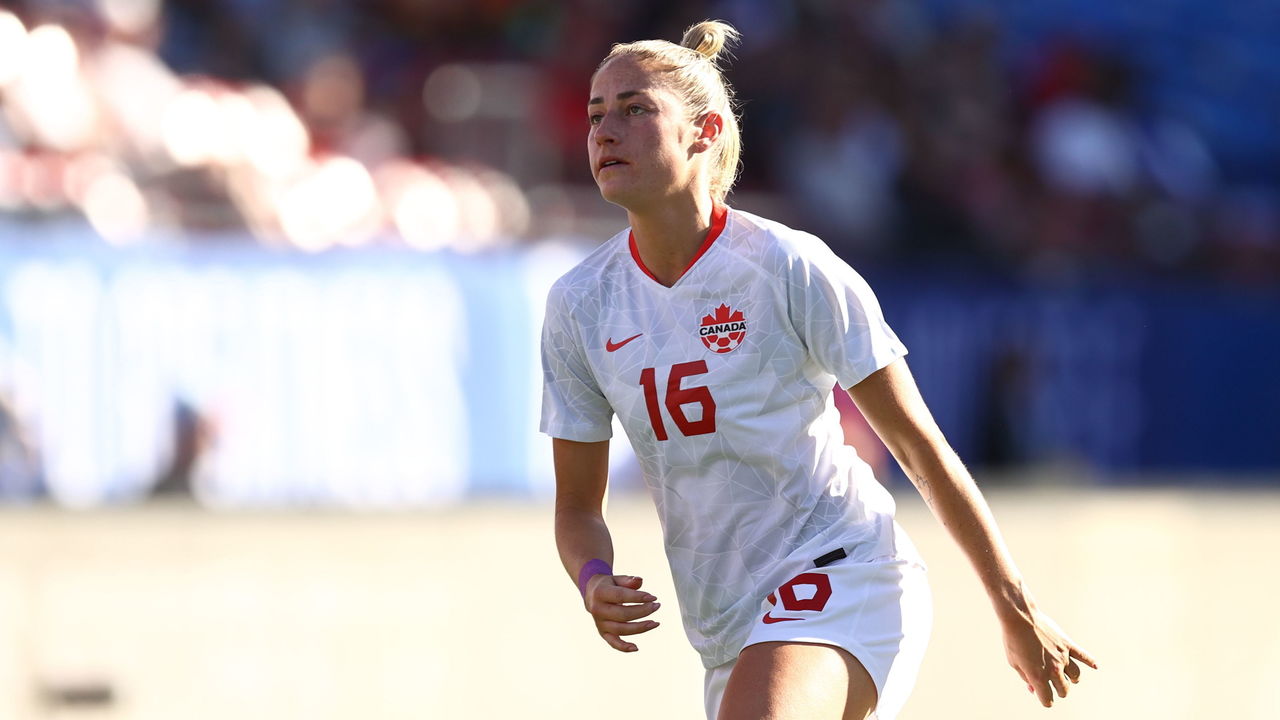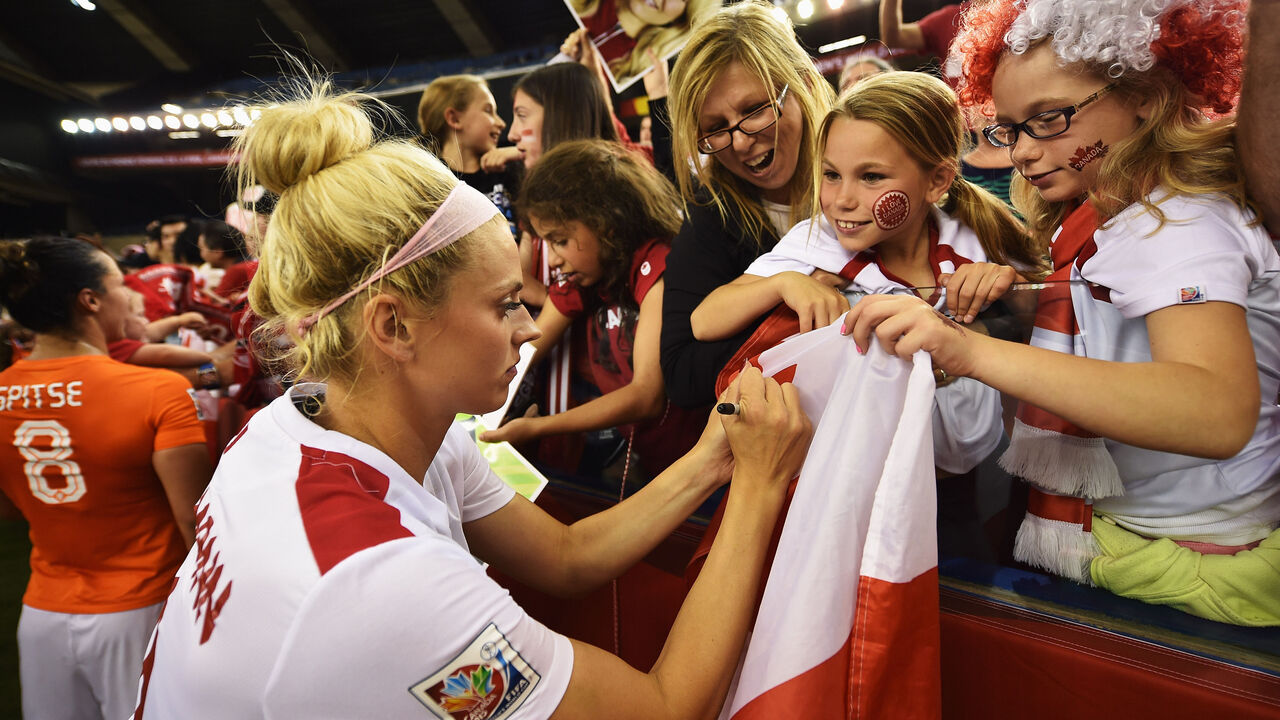The human cost of ACL injuries
After a lifetime devoted to soccer, Lauren Sesselmann was on the cusp of signing a contract in 2014 to play for Manchester City's women's team when disaster struck.
"It was 100% life-changing money," the former Team Canada defender says. "It was quadruple the amount that I was making." But Sesselmann, who won bronze for Canada at the London Olympics, would never see the ink dry on her contract. Days before she was to officially sign, at a national team training camp to prepare for the 2015 World Cup, she made a simple misstep that had a profound impact on her future.
"I was just stepping to block a shot and my knee just snapped in half," she said. "You could hear it. It was so loud."
Sesselmann doubled over in pain as her coach came toward her fighting tears; one of every athlete's worst fears had come to pass - she tore her ACL.
"It was heartbreaking," she said. "After that, I had some very, very dark moments."
Rather than an anomaly, Sesselmann is in fact another statistic in a sea of female soccer players sidelined by ACL injuries. Notable absences at the 2023 World Cup - including Canada's Janine Beckie, American star Christen Press, Dutch forward Vivianne Miedema, and England's Beth Mead and Leah Williamson - have called attention to the issue.
But the increased risk of ACL injuries for women is nothing new. One in 19 female soccer players will experience an ACL tear, according to a paper in the Journal of Orthopedics and Orthopedic Surgery. Normal recovery takes anywhere from nine months to two years.
Studies and medical reports point to several factors that make female athletes more vulnerable to these injuries. The biomechanical differences between male and female bodies, such as wider hips and different knee angles, can lead to altered movement patterns and greater strain on the knee joint during play.
Additionally, hormonal fluctuations and weaker muscle strength surrounding the knee area during specific phases of the menstrual cycle have been identified as potential risk factors - Sesselmann notably was on her period at the time of her injury. And it's not just women's biology that's putting them at greater risk; everything from gendered early childhood play to a lack of resources at the professional level puts unique demands on the ACLs of many women players.
"They don't have the same supports like physiotherapy or access to weight rooms or equipment," said Dr. Joanne Parsons, associate professor in the college of rehabilitation sciences at the University of Manitoba, whose work has focused on understanding the gendered and environmental factors that lead to ACL injuries. "The injuries themselves are happening in competitive environments. But the injury risk factors that are causing those injuries can happen across - we're theorizing - anywhere from pre-sport right through the training phase, and then right into competition."

ACL injuries typically occur when an athlete plants their foot and quickly pivots, or lands awkwardly from a jump. "There's a common movement pattern that's seen when that happens: the knee kind of collapses inwards, like a knock-kneed kind of position, it's very straight," Parsons said. "Those movement patterns and your ability to control your body - in space and in high-stress situations, like a game, for instance - start to develop very early.
"If girls don't have those opportunities to develop the same physical strength, endurance, proprioception, (and) coordination very early, there can be this kind of separation where the boys are developing and the girls aren't. Then you throw them into the same kind of environment where they're all planting and pivoting and landing awkwardly. There's going to be a separation between the results for men and women."
The impact of ACL injuries on female soccer players extends beyond the physical realm, often causing psychological and emotional distress. Because there are fewer elite opportunities in women's soccer, sidelining players with such injuries can lead to missed chances, reduced playing time, and lowered confidence, potentially affecting their overall development and aspirations in the sport.
For Sesselmann, those hypotheticals became a reality when she had to forgo her Man City opportunity to rehab her ACL. Almost 10 years later, she still wonders what might have been.
"I went to Man City a couple months ago and it was hard," she said. She met with some of the executives who were originally trying to sign her, a taste of regret still hanging in the air. "There's still a little piece of me that's like, 'You would have rocked Man City,'" she said.
As awareness grows around this issue, coaches, medical professionals, and sports organizations are working collaboratively to develop injury prevention protocols and tailored rehabilitation techniques. By implementing mobility exercises, promoting proper landing and cutting techniques and incorporating strength training, these initiatives aim to mitigate the risk of ACL injuries and create a safer and more empowering environment for women to excel and enjoy the game they love.
As women's soccer gains more popularity and competitive intensity, the need for injury prevention strategies, rehabilitation care, and mental-health support following an injury becomes increasingly urgent to safeguard the well-being and career longevity of female players.

"I think the biggest thing is the mental aspect. I think people don't understand how difficult an injury of that magnitude is to somebody who has a lot of hopes and dreams," Sesselmann says. "It's really, really hard."
She ultimately did find her way back to the soccer pitch. While she had to say goodbye to her Manchester City aspirations, she was able to recover in time to represent Canada at the 2015 Women's World Cup, which was hosted in six cities across the country.
"I'd always dreamed - since I was a little girl - of playing in a World Cup. I made it," she said.
Jolene Latimer is a video producer and feature writer at theScore.
HEADLINES
- Unheralded players who could be the heroes of Patriots-Seahawks Super Bowl
- Deal or no deal? Finding new homes for Giannis, MPJ, Morant, Davis
- Why Canada has fallen so far behind in goaltending development
- Celtics' Tatum unsure if he'll play this season
- Wemby's monster double-double leads Spurs past Rockets